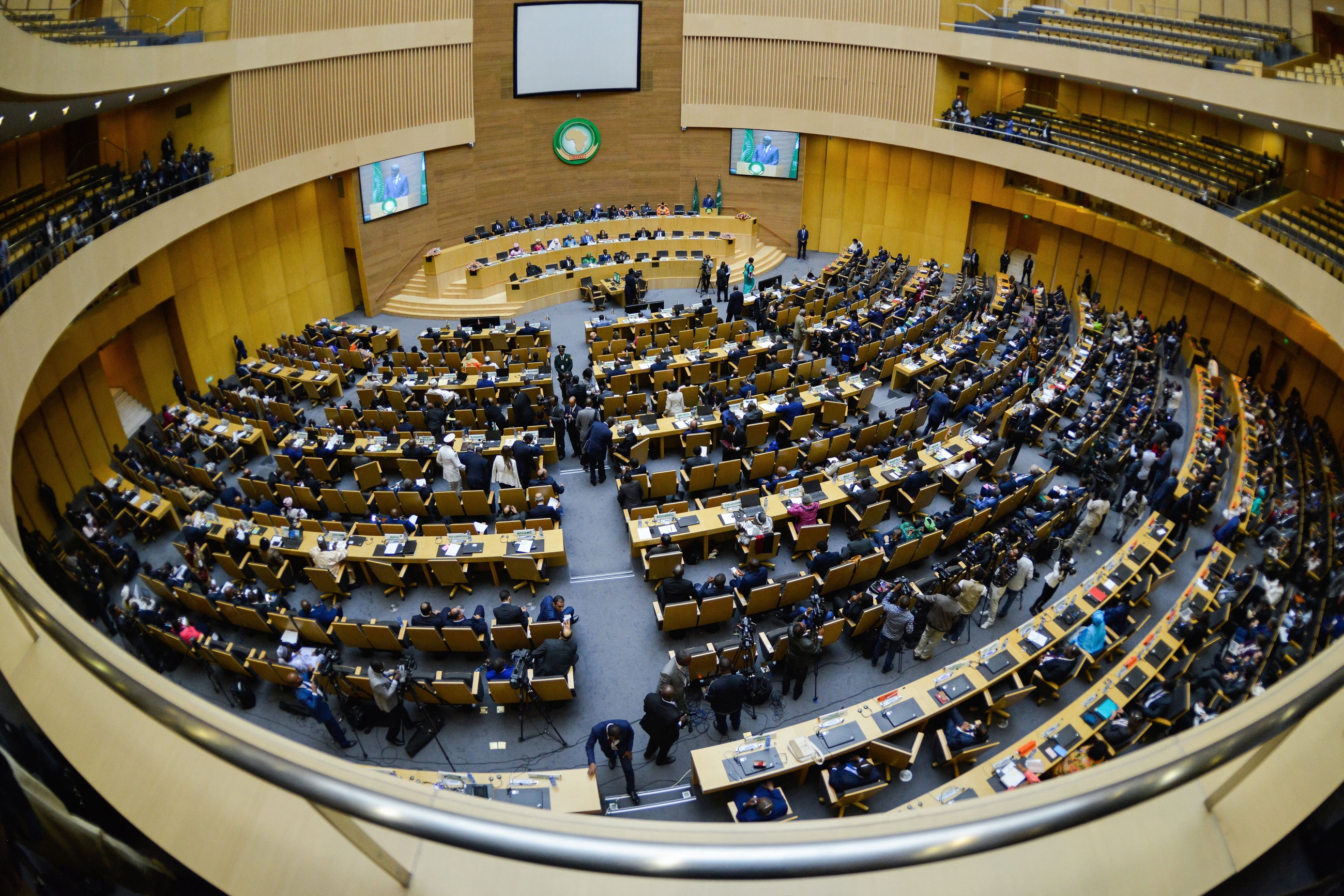'Unjust': South Africa slams African Union granting observer status to Israel

South Africa's government has slammed the African Union Commission's decision to grant Israel an observer seat at the continental body, calling it an "unjust, unwarranted" and "shocking" development.
Pretoria's Department of International Relations and Cooperation (DIRCO) said in a statement on Wednesday that it was appalled by the AU Commission's decision last week to grant Israel observer status at the African bloc, calling it "unilateral" and "without consultation with its members".
"The government of South Africa is appalled at the unjust and unwarranted decision of the AU Commission to grant Israel observer status in the African Union," the statement read.
Israel obtained AU observer status on Friday after 20 years of diplomatic efforts. It had previously held the role at the Organisation of African Unity (OAU) but was frequently thwarted in its attempts to regain the position after the OAU was disbanded in 2002 and replaced by the AU.

According to the Israeli foreign ministry, the new status could enable Israel and the AU to forge stronger cooperation, including in the fight against coronavirus and the prevention "of the spread of extremist terrorism" on the African continent.
According to the AU, there are 70 non-African embassies and non-governmental organisations accredited to the bloc. The Palestinian Authority received its accreditation in 2013.
But the South African government said the AU's decision "is even more shocking in a year in which the oppressed people of Palestine were hounded by destructive bombardments and continued illegal settlements of the land".
Clayson Monyela, a spokesperson for South Africa's DIRCO, told Middle East Eye that the government would push to have the decision reversed, adding the decision would not stand "on our watch".
"The chair of the AU Commission cannot do this without consulting member states. We are insisting that this matter must be tabled for discussion. We assure that we have the numbers to reverse it. It was taken unilterally by the chairperson and we are not going to allow this," he said.
Monyela would not say which other African countries were expected to support the South African complaint, although Algeria has already condemned the AU's move.
'Coming back to Africa'
Relations between Israel and a series of African countries have warmed over the past decade, particularly during former Israeli Prime Minister Benjamin Netanyahu's time in office. Israel has diplomatic relations with 46 African countries.
In February, Equatorial Guinea announced it would join Malawi and the Democratic Republic of Congo in moving their embassies to Jerusalem, following the United States' decision to do so in 2017.
Yotam Gidron, author of Israel in Africa: Security, Migration, Interstate Politics, told MEE that Israel's inclusion in the AU would help African countries without official ties to normalise relations with Israel:
"There was always a certain ambiguity with regard to the exact procedure required in order to grant Israel this status, and a disagreement over the number of AU member states that should endorse or support the move.
"Israel was mainly advocating for this via its allies in Africa - countries like Rwanda, Ethiopia, Kenya and Ghana," Gidron said. "Having formal access to the AU means more space for Israel to advocate for its political objectives and curb Palestinian influence in Africa.
"If Israel uses its observer status to change the AU's position on Israel-Palestine, this could also impact the position of individual African states on this issue," Gidron added.
The AU's decision was slammed by pro-Palestinian groups as well as by proponents of the Boycott, Divestment and Sanctions (BDS) movement.
The South African BDS coalition described the move earlier this week as undemocratic and a unilateral "manoeuvre".
Roshan Dadoo, a convenor of the South Africa BDS coalition, said it welcomed the South African government's "strong" statement.
"Hopefully, that will be encourage other governments. But of course a lot of them are quite compromised with their relation with Israel," Dadoo said.
"We saw Algeria and Tunisia, but we are expecting Nigeria and maybe Namibia and hopefully the South African Development Community (SADC) as a group."
Explaining the shift on the African continent towards increased cooperation and the normaliation of relations of ties with Israel, Gidron, said that the AU was "navigating uncomfortably between its historical ideological commitment, as an institution, to the Palestinian cause, and the pragmatic stance of a growing number of African leaders who view ties with Israel as politically or economically beneficial.
"This latest development reflects the fact that the number of the latter is growing," he added.
Middle East Eye delivers independent and unrivalled coverage and analysis of the Middle East, North Africa and beyond. To learn more about republishing this content and the associated fees, please fill out this form. More about MEE can be found here.





